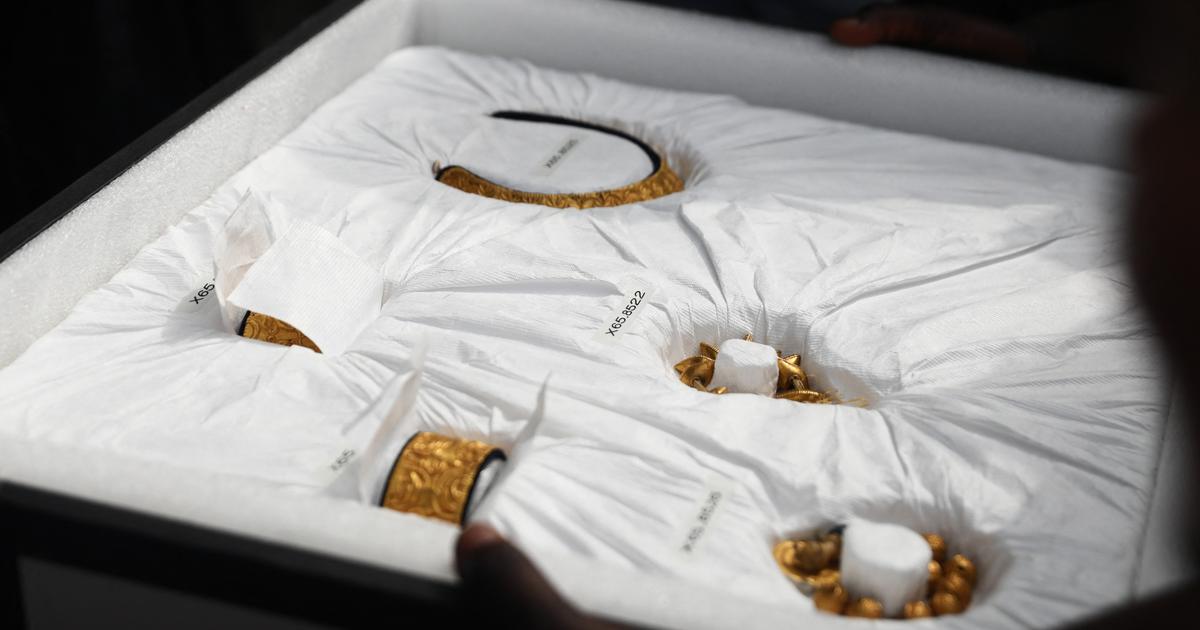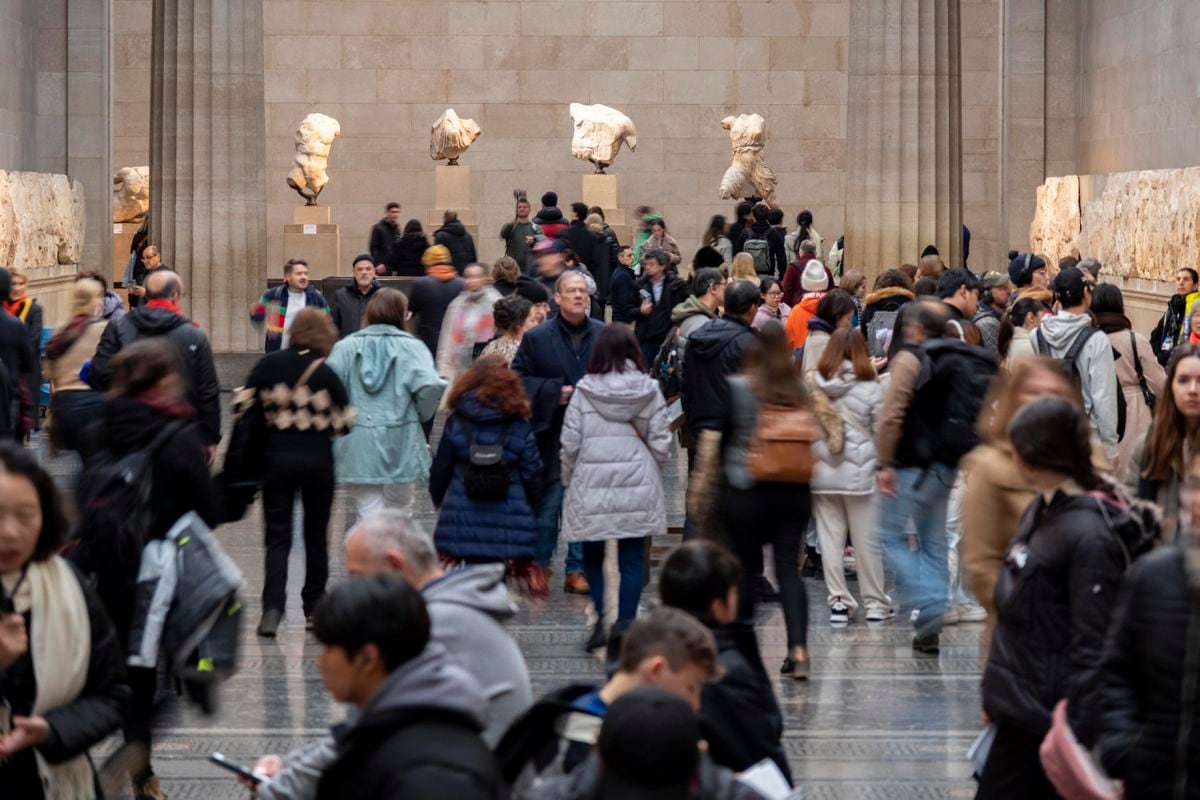Enlarge image
Before the trip: Hermann Parzinger, President of the Prussian Cultural Heritage Foundation and Esther Moombolah, Director of the National Museum in Namibia in Berlin
Photo: TOBIAS SCHWARZ / AFP
Germany has returned 23 ancient artifacts stolen from the country by German colonizers to Namibia.
"These objects will remain in Namibia," assured the President of the Prussian Cultural Heritage Foundation, Hermann Parzinger, at the handover in Windhoek.
The return of the artworks, tools and jewelry is part of a rapprochement between the two countries.
The Ethnological Museum Berlin, based in the Humboldt Forum, gave the objects on permanent loan to the National Museum in the Namibian capital.
Namibian activists criticized the decision and instead called for a final handover.
The 23 objects include a vessel decorated with three skulls, a doll in traditional costume, jewelry and spears.
Namibian experts selected the objects for their historical, cultural and aesthetic significance.
They were immediately put on public display and are available to Namibian scientists for research purposes.
"All objects were collected from different Namibian communities during the German colonial period," explained Hilma Kautondokwa, President of the Namibian Museum Association, at the handover ceremony.
That probably happened in the second half of the 19th century.
Approach with obstacles
Hundreds of other objects from Namibia are still in German possession.
The Ethnological Museum Berlin has been discussing how to deal with them with Namibia for three years.
In 2019, Germany gave Namibia a Bible and a whip that had belonged to Namibian national hero Kaptein Hendrik Witbooi.
Witbooi was an important representative of the Namibian resistance against the German colonial rulers.
In 2018, Germany brought back to Namibia skulls, bones and other human remains that had been stolen for "scientific experiments" during the colonial period.
Today's Namibia was a German colony from 1884 to 1915.
Between 1904 and 1908, under German colonial rule, tens of thousands of Herero and Nama were killed by troops from the German Empire.
In May of last year, the then federal government and the Namibian government announced that they had reached an agreement on a reconciliation agreement, which would provide for reconstruction aid totaling 1.1 billion euros in compensation for German colonial crimes in what is now Namibia.
In the agreement, the German crimes against the Herero and Nama are recognized as "genocide" in the historical sense, but not in the sense of international law.
The legal term »reparations« is therefore not used.
The German-Namibian agreement was heavily criticized by the opposition in Namibia and representatives of the Herero and Nama, among others.
They lament the lack of participation by victims' representatives in the negotiations with Germany and insist on official recognition of the genocide, also in the sense of international law.
atb/AFP





/cloudfront-eu-central-1.images.arcpublishing.com/prisa/WLPWLBRUVEFBLOOH53VXMBWGKM.jpg)



